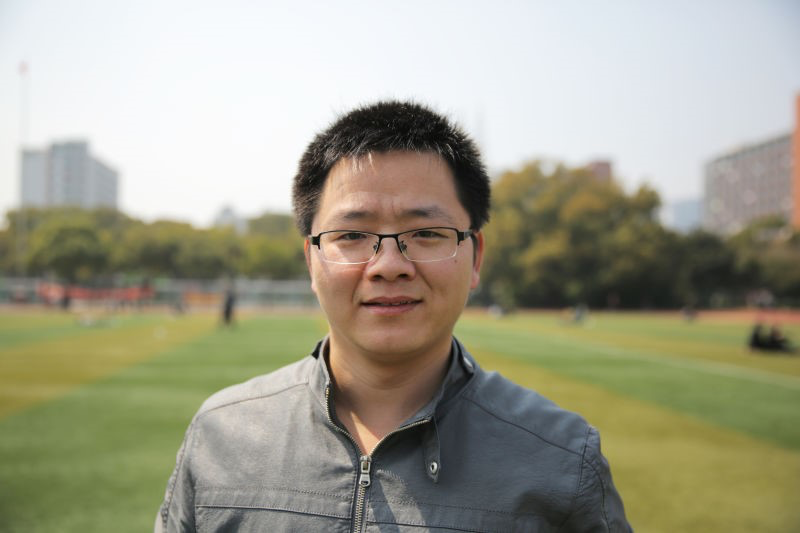
江俊博士
通讯地址:上海市徐汇区桂林路100号上海师范大学音乐学院
邮编:200234
Email: jjxytc@163.com
个人网页
________________________________________
https://www.researchgate.net/profile/Jun_Jiang36/publications
https://shnu.academia.edu/junjiang
教育经历
________________________________________
2014-2017 上海师范大学教育学院 博士
2008-2011 福建师范大学音乐学院 硕士
2004-2008 信阳师范学院音乐学院 本科
研究兴趣
________________________________________
音乐治疗(特别是与情绪、运动和言语有关的障碍)、音乐认知和音乐情绪
教授课程
________________________________________
音乐心理学、音乐治疗、音乐教育与心理研究方法、音乐表演美学
代表论著
________________________________________
Xu, J., Zhou, L., Liu, F.,Xue, C., Jiang, J., & Jiang, C. (2021). The autistic brain can process local but not global emotion regularities in facial and musical sequences. Autism Research, 1–19. https://doi.org/10.1002/aur.2635
Jiang, J., Hai, T., Man, D., & Zhou, L. (2020). Is absolute pitch associated with musical tension processing? i-Perception, 11(6), 1-16. https://doi.org/10.1177/2041669520971655 (Early Career Advancement Prizefor this paper)
江俊, 张伟霞, 王莞琪. (2020). 声乐与器乐情绪加工的ERP研究. 心理科学进展, 28(7), 1133-1140. http://journal.psych.ac.cn/xlkxjz/CN/Y2020/V28/I7/1133
Jiang, J., Liu, F., Zhou, L., & Jiang, C. (2019). The neural basis for understanding imitation-induced musical meaning: The role of the human mirror system. Behavioural Brain Research, 359, 362–369. http://dx.doi.org/10.1016/j.bbr.2018.11.020
Zhou, L., Liu, F., Jiang, J., & Jiang, C. (2019). Impaired emotional processing of chords in congenital amusia: Electrophysiological and behavioral evidence. Brain and Cognition, 135: 103577. https://doi.org/10.1016/j.bandc.2019.06.001
Zhou, L., Liu, F., Jiang, J., Jiang, H., Jiang, C. (2019) Abnormal neural responses to harmonic syntactic structures in congenital amusia. Psychophysiology, e13394. https://doi.org/10.1111/psyp.13394
赵怀阳,江俊, 周临舒, 蒋存梅. (2019). 人类镜像系统参与音乐情绪的自动加工:来自EEG的证据. 心理学报, 51(7), 795-804.http://journal.psych.ac.cn/xlxb/CN/Y2019/V51/I7/795
Zhang, R., Ewalds-Kvist, B. M., Li, D., & Jiang, J. (2019). Chinese students’ satisfaction with life relative to psychological capital and mediated by purpose in life. Current Psychology, 38(1), 260-271.
https://doi.org/10.1007/s12144-018-9849-z
Jiang, J., Rickson, D., & Jiang, C. (2016). The mechanism of music for reducing psychological stress: Music preference as a mediator. The Arts in Psychotherapy, 48, 62-68. http://dx.doi.org/10.1016/j.aip.2016.02.002
Jiang, J., Liu, F., Wan, X., & Jiang, C. (2015). Perception of melodic contour and intonation in autism spectrum disorder: Evidence from Mandarin speakers. Journal of Autism and Developmental Disorders, 45(7), 2067-2075. http://dx.doi.org/10.1007/s10803-015-2370-4
王杭, 江俊, 蒋存梅. (2015). 音乐训练对认知能力的影响. 心理科学进展, 23(3), 419-429. http://journal.psych.ac.cn/xlkxjz/CN/Y2015/V23/I3/419
江俊, 王梓梦, 万璇, 蒋存梅. (2014). 音乐时间加工的影响因素. 心理科学进展, 22(4), 650-658. http://journal.psych.ac.cn/xlkxjz/CN/Y2014/V22/I4/650
Jiang, J., Zhou, L., Rickson, D., & Jiang, C. (2013). The effects of sedative and stimulative music on stress reduction depend on music preference. The Arts in Psychotherapy, 40(2), 201-205. http://dx.doi.org/10.1016/j.aip.2013.02.002
江俊. (2010). 音乐对心理压力和生理反应的影响. 天津音乐学院学报: 天籁, 3, 56-60.
江俊. (2009). 国外音乐偏好与人格特征研究综述. 星海音乐学院学报, 4, 71-77.
